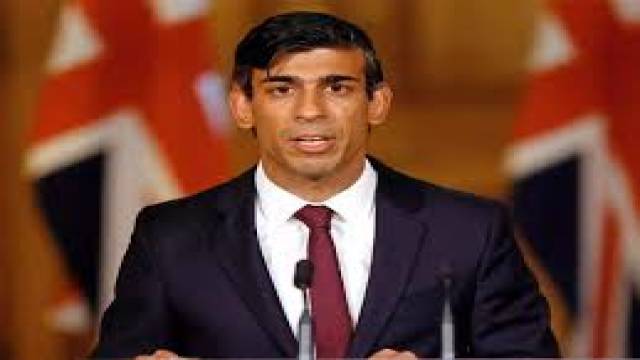

 Daily Star Banner
Daily Star Banner 
Shanzida Afreen Eity:
British Prime Minister Rishi Sunak has portrayed himself as thorough and evidence-led. That's why his gamble to call a U.K. general election for July 4 has come as such a surprise.
Those personal traits were supposed to be attributes that would endear him to British voters following the chaos of his two predecessors in the top job, Boris Johnson and Liz Truss.
But if opinion polls ahead of the election prove right, he hasn't shifted the dial much, if at all. The main opposition Labour Party is widely seen to be ahead of the Conservatives, who have been in power since 2010.
Sunak became prime minister in October 2022, when he replaced his predecessor Truss and pitched himself as a stable pair of hands after Truss roiled financial markets with a botched plan of unfunded tax cuts.
Sunak had warned Conservative Party members that her economic plan was reckless and would cause havoc. He was proved right.
On replacing her after an uncontested leadership battle, Sunak became Britain’s first leader of color, the first Hindu to become prime minister — and at 42, the youngest leader for more than 200 years.
Sunak, now 44, had enjoyed a rapid rise to the top within Conservative ranks. He was plucked from seemingly nowhere four years ago to become Treasury chief on the eve of the coronavirus pandemic.
Within weeks, he had to unveil the biggest economic support package any Chancellor of the Exchequer has ever had to outside wartime.
Smooth, confident and at ease with the march of modern technology, he was dubbed “Dishy Rishi” and quickly became one of the most trusted and popular faces within Johnson's government. His geekiness — he's a self-confessed “huge” Star Wars fan — added to his popularity.
As Treasury chief, Sunak was lauded for rolling out a COVID-19 job retention package that arguably saved millions of jobs. But it came at a cost, bringing the country's tax burden to its highest level since the 1940s.
Sunak is instinctively a low-tax, small-state politician who idolizes former Prime Minister Margaret Thatcher. But he notably highlighted his record during the pandemic in his address to the nation on Wednesday as he announced the date of the general election.
“As I stand here as your prime minister, I can’t help but reflect that my first proper introduction to you was just over four years ago," Sunak said in pouring rain outside No. 10 Downing Street.
“As I did then, I will forever do everything in my power to provide you with the strongest possible protection I can — that is my promise to you," he added.
In his 19 months in office, Sunak has struggled to keep a lid on bitter divisions within his Conservative Party. One side wants him to be much tougher on immigration and bolder in cutting taxes, while another have urged him to move more to the centerground of politics, the space where historically British elections are won.
That tension has been most notable in his controversial plan to send migrants arriving in small boats across the English Channel to Rwanda rather than being allowed to seek asylum in Britain. The more right wing elements in his party have argued that the policy is destined to fail, and urged Sunak to block all routes of legal challenge.
Despite a toxic inheritance of squeezed living standards and over-stretched public services, he pitched himself as a leader that would restore calm and stability to the economy and revive the party's fortunes.
A year and a half on, inflation is down to near-normal levels, wages are rising and mortgage rates are set to start falling. A general election must take place before Jan. 2025, but Sunak's decision to call an early election is widely seen as a gamble that he will be rewarded for steering the British economy into calmer waters.
Time will tell if that gamble pays off, but the early reaction to his rain-soaked speech Wednesday wasn't promising. Thursday's newspapers ran with headlines like “Drowned and out" and Sunak became a figure of fun across social media.
“It doesn’t look good, for any prime minister to look completely sodden and, damp in the way that Rishi Sunak did,” said Tim Bale, a professor of politics at Queen Mary University of London.
Sunak was born in 1980 in Southampton on England’s south coast to parents of Indian descent who were both born in East Africa. His father was a family doctor and his mother ran a pharmacy, whose accounts he’d often help with.
He has described how his parents saved to send him to Winchester College, one of Britain’s most expensive boarding schools, then went to Oxford University to study politics, philosophy and economics — the degree of choice for future prime ministers.
He then got an MBA at Stanford University, which proved to be a launchpad for his subsequent career as a hedge fund manager at Goldman Sachs in the U.S. There, he met his wife, Akshata Murty, the daughter of the billionaire founder of Indian tech giant Infosys. They have two daughters.
The couple are the wealthiest inhabitants yet of No. 10 Downing Street, according to the Sunday Times’ 2024 Rich List, with an estimated fortune of 651 million pounds ($815 million). They’re even richer than King Charles III, a level of wealth that Labour leader Keir Starmer says make Sunak out of touch with the everyday realities and struggles of working people.
With his fortune secure, Sunak was elected to Parliament for the safe Tory seat of Richmond in Yorkshire in 2015. In Britain’s 2016 Brexit referendum, he supported leaving the European Union.
When “leave” unexpectedly won, Sunak enjoyed a meteoric rise that swiftly led him to Downing Street.
He's not used to losing. Maybe that's why he's taken the gamble of his political life.